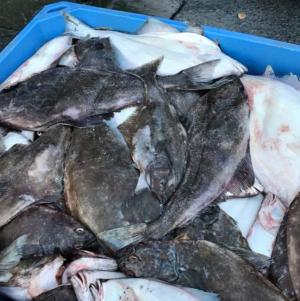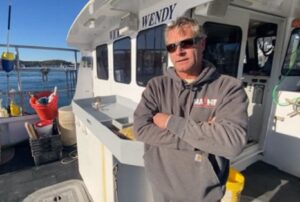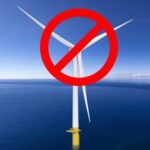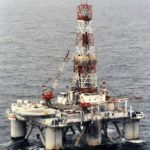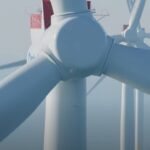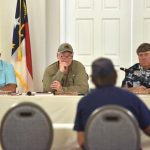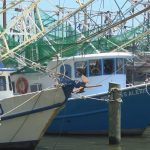Tag Archives: Alaska Groundfish Data Bank
Trawlers applaud rejection of efforts to ban PWS trawling
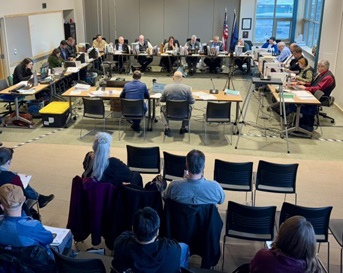 Members of the Alaska Pollock Fishery Alliance are applauding an Alaska Board of Fisheries decision made in Cordova in opposition to a proposed ban on trawling in Prince William Sound. In a statement issued on Dec. 16 from Cordova, the Alliance cited the board’s decision as a “collaborative victory for science-based fisheries management, sustainable fishing practices, and Alaska’s coastal communities.” “It was also a profound moment of solidarity for sustainable fisheries among stakeholders who sometimes compete for resources in these challenging economic times,” the Alliance said. more, >>CLICK TO READ<< 09:37
Members of the Alaska Pollock Fishery Alliance are applauding an Alaska Board of Fisheries decision made in Cordova in opposition to a proposed ban on trawling in Prince William Sound. In a statement issued on Dec. 16 from Cordova, the Alliance cited the board’s decision as a “collaborative victory for science-based fisheries management, sustainable fishing practices, and Alaska’s coastal communities.” “It was also a profound moment of solidarity for sustainable fisheries among stakeholders who sometimes compete for resources in these challenging economic times,” the Alliance said. more, >>CLICK TO READ<< 09:37
Pollock trawl closure sends economic ripples across Kodiak as fishermen adapt
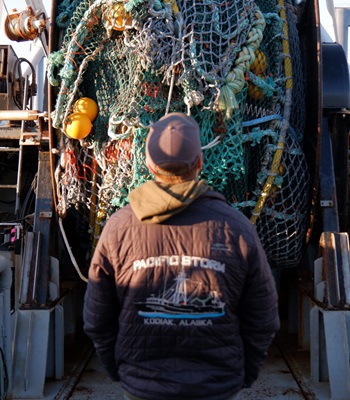 Cole Hockema has been fishing since he was a teenager growing up in Oregon. Hockema captains the F/V Pacific Storm, a 100-foot trawler based out of Kodiak, which his father owns. The vast majority of the Central Gulf of Alaska trawl fleet is made up of local boats like his. According to the trade group Alaska Groundfish Data Bank, 19 boats were fishing in the Central Gulf of Alaska when the pollock fishery closed on Sept. 25. 15 of those are homeported in Kodiak. Normally, fishermen like Hockema would be out on the water until early November, when the Gulf of Alaska’s pollock B season typically closes. But this fall season ended just three weeks into fishing, when two vessels incidentally hauled in approximately 2,000 Chinook salmon, which exceeded the fishery’s annual bycatch limit. Hockema said the Pacific Storm was offloading its catch on Sunday, Sept. 22 when they first got the news about the bycatch and he knew the fleet would need to stop fishing immediately. more, >>CLICK TO READ<< 16:27
Cole Hockema has been fishing since he was a teenager growing up in Oregon. Hockema captains the F/V Pacific Storm, a 100-foot trawler based out of Kodiak, which his father owns. The vast majority of the Central Gulf of Alaska trawl fleet is made up of local boats like his. According to the trade group Alaska Groundfish Data Bank, 19 boats were fishing in the Central Gulf of Alaska when the pollock fishery closed on Sept. 25. 15 of those are homeported in Kodiak. Normally, fishermen like Hockema would be out on the water until early November, when the Gulf of Alaska’s pollock B season typically closes. But this fall season ended just three weeks into fishing, when two vessels incidentally hauled in approximately 2,000 Chinook salmon, which exceeded the fishery’s annual bycatch limit. Hockema said the Pacific Storm was offloading its catch on Sunday, Sept. 22 when they first got the news about the bycatch and he knew the fleet would need to stop fishing immediately. more, >>CLICK TO READ<< 16:27
Pollock fishery shut down early after unprecedented salmon bycatch in Gulf of Alaska
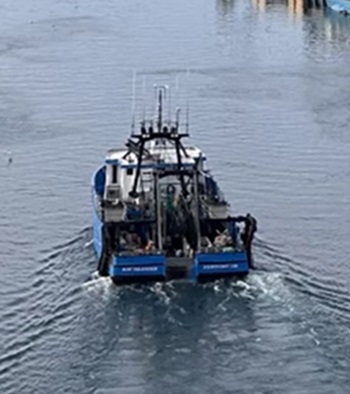 The National Marine Fisheries Service [NMFS] announced Wednesday, Sept. 25 that it was shutting down the rest of the Central Gulf of Alaska pollock season. That’s after reports that the trawler fleet incidentally caught “unprecedented amounts of Chinook salmon” this week, which comes as the issue of salmon bycatch faces mounting scrutiny. Jonathan Kurland, the Fisheries Services acting regional administrator for the Alaska region. said the closure was necessary to “prevent exceeding the 2024 Chinook salmon prohibited species catch limit.” The Kodiak-based trade group Alaska Groundfish Data Bank said in a press release on Sept. 24 that two fishing vessels trawling for pollock on Sept. 22 came upon a hotspot of Chinook salmon, which the organization described as an “extremely unprecedented amount.” The vessels were in an area adjacent to Kodiak Island. more, >>CLICK TO READ<< 15:01
The National Marine Fisheries Service [NMFS] announced Wednesday, Sept. 25 that it was shutting down the rest of the Central Gulf of Alaska pollock season. That’s after reports that the trawler fleet incidentally caught “unprecedented amounts of Chinook salmon” this week, which comes as the issue of salmon bycatch faces mounting scrutiny. Jonathan Kurland, the Fisheries Services acting regional administrator for the Alaska region. said the closure was necessary to “prevent exceeding the 2024 Chinook salmon prohibited species catch limit.” The Kodiak-based trade group Alaska Groundfish Data Bank said in a press release on Sept. 24 that two fishing vessels trawling for pollock on Sept. 22 came upon a hotspot of Chinook salmon, which the organization described as an “extremely unprecedented amount.” The vessels were in an area adjacent to Kodiak Island. more, >>CLICK TO READ<< 15:01
Gulf of Alaska trawl pollock vessels to be included in electronic monitoring program
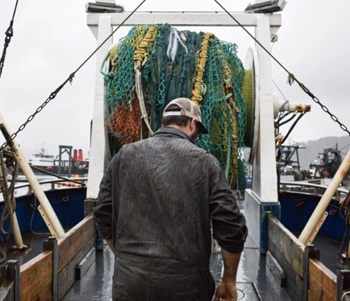 According to the 2023 annual report from the North Pacific Observer Program, the vast majority of groundfish harvest in Alaska is observed with full coverage, meaning 100% of all trips are monitored by either onboard observers or electronic monitoring. After years of testing the program, electronic monitoring will soon be expanded to include pelagic trawl pollock catcher vessels and tenders delivering to shoreside processors or stationary floating processors, across the Bering Sea and Aleutian Islands, and the Gulf of Alaska. That includes vessels that already have an observer on board. more, >>CLICK TO READ<< 07:55
According to the 2023 annual report from the North Pacific Observer Program, the vast majority of groundfish harvest in Alaska is observed with full coverage, meaning 100% of all trips are monitored by either onboard observers or electronic monitoring. After years of testing the program, electronic monitoring will soon be expanded to include pelagic trawl pollock catcher vessels and tenders delivering to shoreside processors or stationary floating processors, across the Bering Sea and Aleutian Islands, and the Gulf of Alaska. That includes vessels that already have an observer on board. more, >>CLICK TO READ<< 07:55
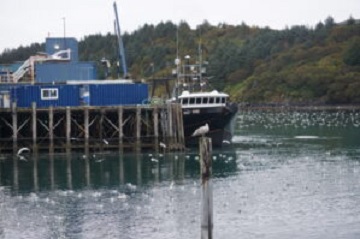
Bycatch task force considers new rules, more research to protect Alaska fish intercepted at sea
In the search for a solution to the problem of bycatch, the unintended at-sea harvest of non-target species, the stakes in Alaska are high. Now a special task force is nearing the end of a year-long process to find solutions that satisfy competing interests to the problem of bycatch, which refers to fish that are caught incidentally by commercial fishers who are targeting other fish. The Alaska Bycatch Review Task Force, created by Gov. Mike Dunleavy last November, is due to release its final report by the end of next month. At least two additional meetings are to be held between now and then. >click to read< 11:50
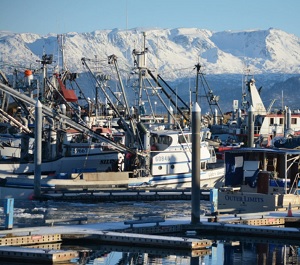
Gulf of Alaska Pollock fishermen agree to delay season, will allow roe to ripen, making fish more valuable.
Trawl fishermen targeting pollock in the Gulf of Alaska have collectively agreed to stand down from the Jan. 20 start of the fishery in order to target the fish in their more lucrative phase of harvesting the roe, instead of the flesh of the fish which is used more in fish sticks and surimi. The fishermen want to wait for two weeks to allow the roe to ripen, making the fish more valuable.,, In June 2019, the North Pacific Management Council voted to combine the four pollock seasons — two in spring and two in fall — to just two seasons: one that runs from Jan. 20 to May 31, and another that runs from Sept. 1 to Nov. 1. >click to read< 08:20
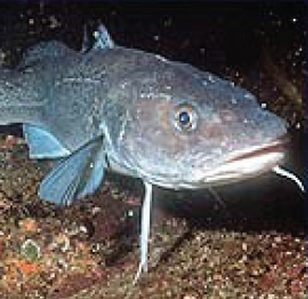
Coastal communities to ask for disaster declaration after cod forecast reduced by 80 percent
Kodiak officials already are drafting a disaster declaration due to the crash of cod stocks throughout the Gulf of Alaska. The shortage will hurt many other coastal communities as well. Gulf cod catches for 2018 will drop by 80 percent to just under 29 million pounds in federally managed waters, compared to a harvest this year of nearly 142 million pounds. The crash is expected to continue into 2020 or 2021. Cod catches in the Bering Sea also will decline by 15 percent to 414 million pounds. In all, Alaska produces 12 percent of global cod fish. click here to read the story 12:39 

Kodiak officials prepare for ‘disaster’: An 80 percent decline in Gulf cod catches in 2018
Kodiak officials already are drafting a disaster declaration due to the crash of cod stocks throughout the Gulf of Alaska. The shortage will hurt many other coastal communities as well. Gulf cod catches for 2018 will drop by 80 percent to just under 29 million pounds in federally managed waters, compared to a harvest this year of nearly 142 million pounds. The crash is expected to continue into 2020 or 2021. Cod catches in the Bering Sea also will decline by 15 percent to 414 million pounds. In all, Alaska produces 12 percent of global cod fish. click here to read the story 09:12
Gulf of Alaska fishermen to council: don’t experiment with our fisheries
A majority of  Gulf of Alaska groundfish trawlers will voluntarily suspend fishing in order to attend the North Pacific Fishery Management Council meeting in Portland, Oregon the first week in February. They are concerned that the recent State of Alaska proposal to restructure their fisheries would seriously harm their livelihoods and the economies of their fishery dependent communities. “This is really quite unique,” said Julie Bonney, executive director of the Alaska Groundfish Data Bank based in Kodiak, Alaska, in a press release. “Fishermen agreeing to stand down, essentially losing income, in order to make this trip to provide their input demonstrates just how important this change in management is to the fishing industry.” Read the article here 08:28
Gulf of Alaska groundfish trawlers will voluntarily suspend fishing in order to attend the North Pacific Fishery Management Council meeting in Portland, Oregon the first week in February. They are concerned that the recent State of Alaska proposal to restructure their fisheries would seriously harm their livelihoods and the economies of their fishery dependent communities. “This is really quite unique,” said Julie Bonney, executive director of the Alaska Groundfish Data Bank based in Kodiak, Alaska, in a press release. “Fishermen agreeing to stand down, essentially losing income, in order to make this trip to provide their input demonstrates just how important this change in management is to the fishing industry.” Read the article here 08:28






